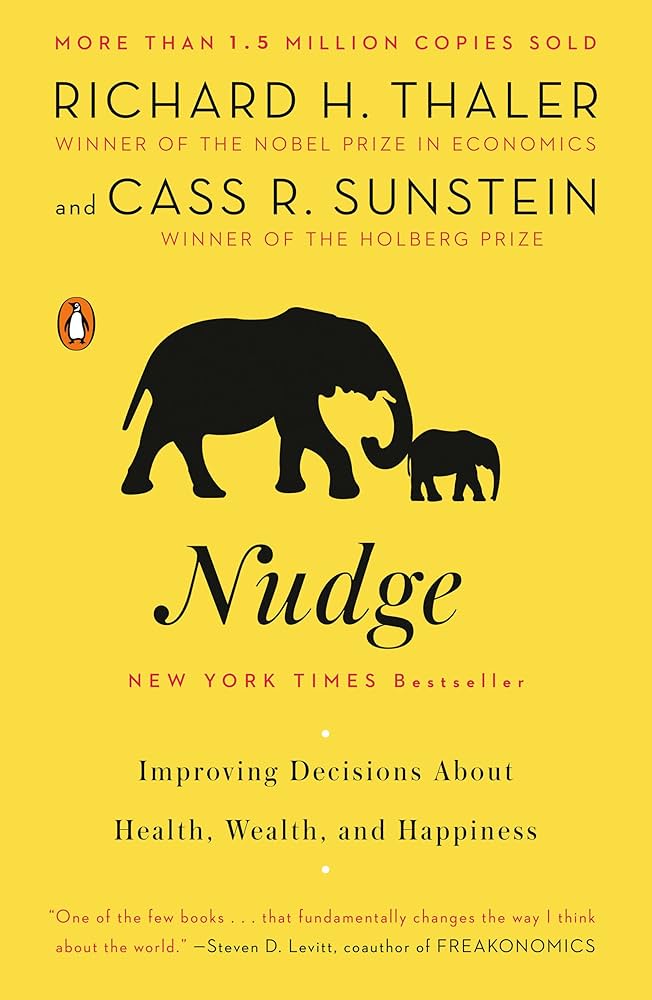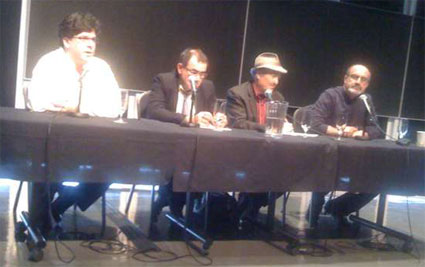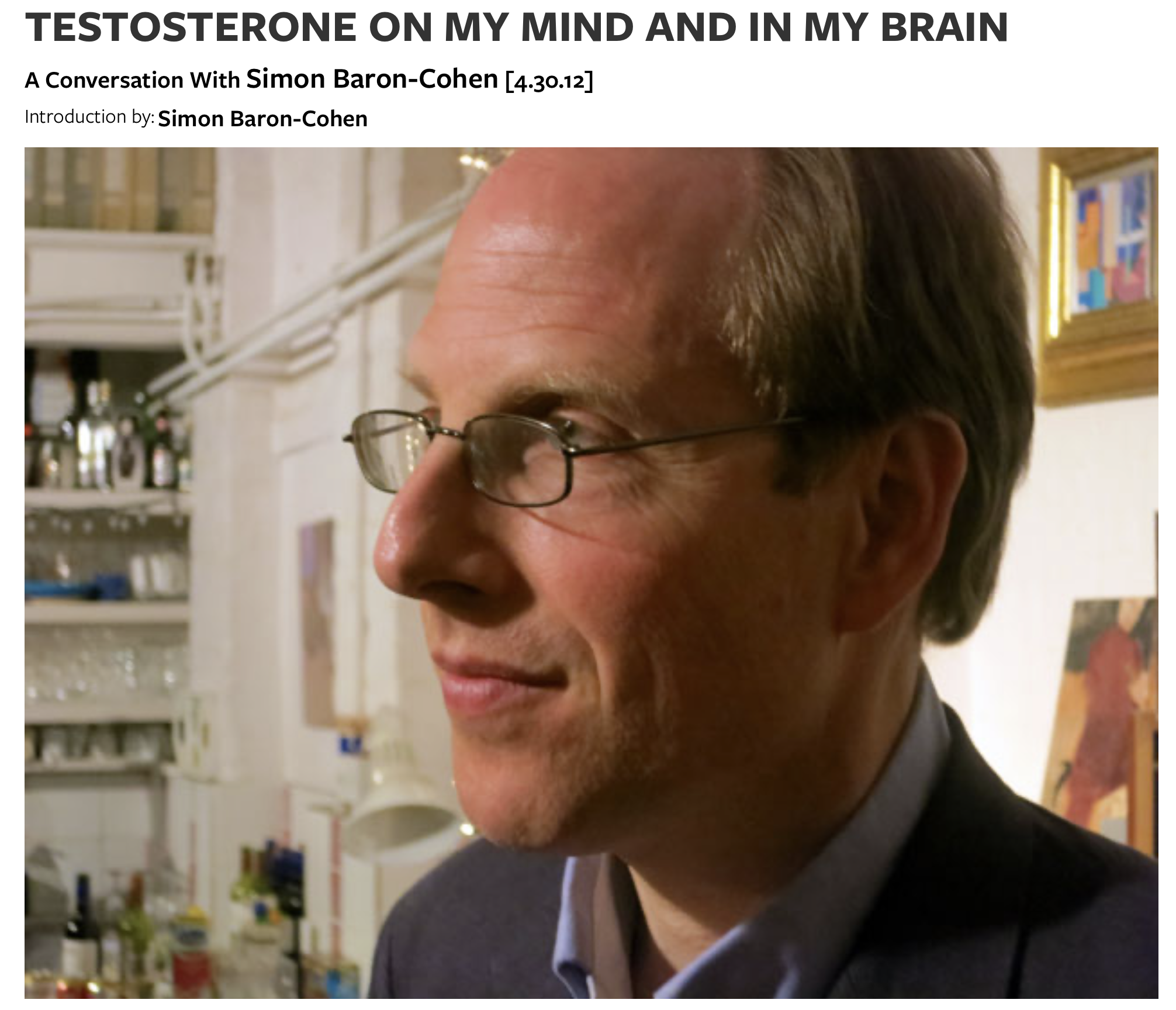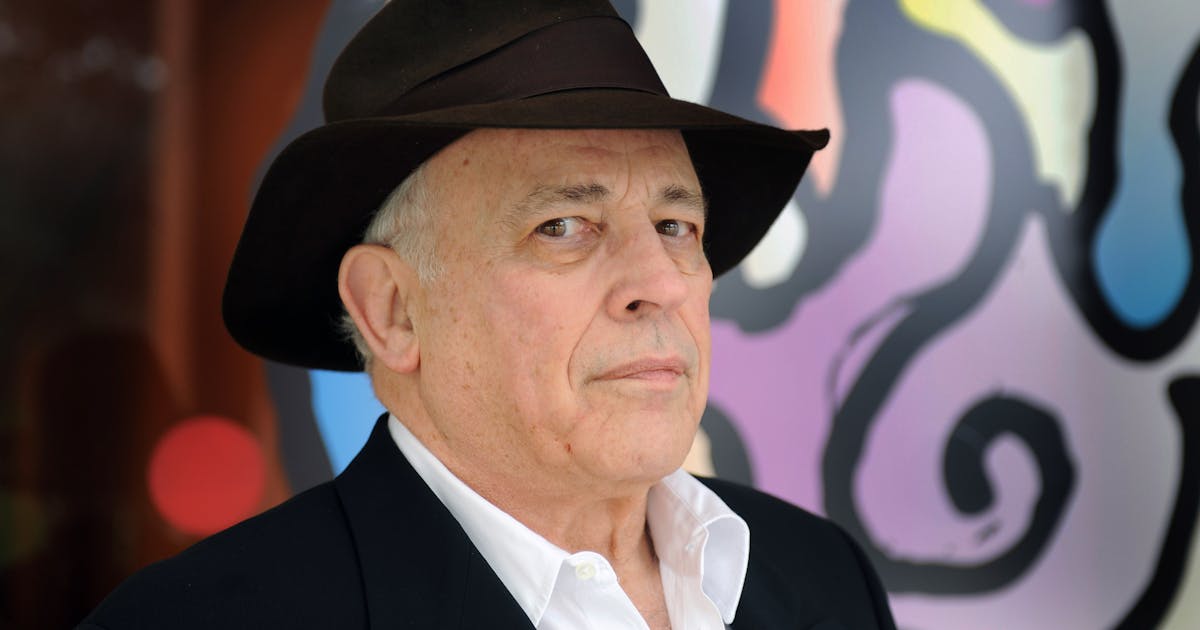Part Three: What was Epstein's “Edge” agenda?
Was Jeffrey Epstein part of Russia's broader war on the West? In this multi-part series we examine his obsession with nuclear scientists, eugenics, transhumanism, and influence. What we found will likely surprise you.

In our last installment we examined the overlap between Jeffrey Epstein, the Santa Fe Institute, and John Brockman's Edge Foundation — his culture-shaping salon that combined real-world events with web-based discourse.
Jeffrey Epstein became Brockman's principal funder, donating at least $638,000 between 1999 and 2015, raising the question: what, specifically, was Epstein funding? While it seems clear that Epstein wanted access to Brockman's powerful network, the subjects that Edge chose to highlight are worth exploring.
As part of our investigation, we compiled details on over 80 Brockman-sponsored events and public conversations running from 1981 to 2019, spanning from his early Reality Club discussions (which formed the basis for his Third Culture and Edge Foundation networks) into various Edge-sponsored classes, dinners, and the well-known “billionaire's dinners” many of which were attended by Epstein.
Libertarian Paternalism: Masterclass in Behavioral Economics
In July 2008, Edge convened a three day class on the topic of behavioral economics led by professor Richard Thaler of Harvard. Thaler (with co-author Cass Sunstein of the University of Chicago) had just published the book Nudge: Improving Decisions about Health, Wealth, and Happiness, which explored the idea that simple design changes could have big impact on the world. The book was an expansion on an earlier 2003 paper by Thaler and Sunstein titled ‘Libertarian Paternalism Is Not an Oxymoron.’

The course was led by Thaler and two other giants in the emerging field of behavioral economics, Nobel Laureate Daniel Kahneman and his former student Sendhil Mullainathan. But most remarkable about this course was who was in attendance as students. The all-star list included Elon Musk (Tesla), Jeff Bezos (Amazon), Nathan Myhrvold (Microsoft), Sean Parker (Facebook), Evan Williams (Twitter), along with several other tech and science luminaries. Many participants (Myhrvold, George Dyson, Danny Hillis) were also affiliates of Epstein.
The Edge.org website memorialized the session this way, attributing the comment to Richard Thaler:
If you remember one thing from this session, let it be this one: There is no way of avoiding meddling. People sometimes have the confused idea that we are pro meddling. That is a ridiculous notion. It's impossible not to meddle. Given that we can't avoid meddling, let's meddle in a good way.
Thaler and Sunstein explained their reasoning in their Libertarian Paternalism by suggesting that anyone in the position of designing products or systems would be put into the position of making choices that shape outcomes, potentially for millions (or even billions) of people. Therefore, designers (and executives who make decisions that affect design) have an obligation to make decisions that help lead people to outcomes that are in their own best interest while also preserving their agency.
Recognizing the hazards inherent to their logic, they decided to brand their approach as libertarian paternalism (preserving agency and liberty, while also making important decisions on behalf of others). They explain:
Libertarians embrace freedom of choice, and so they deplore paternalism. Paternalists are thought to be deeply skeptical of freedom of choice and to deplore libertarianism. According to the conventional wisdom, libertarians cannot possibly embrace paternalism. The idea of libertarian paternalism seems to be a contradiction in terms.
The substance of Nudge boils down to ideas like adding an image of a fly to a urinal to provide a target for otherwise wayward men — a simple change, but when applied at scale, one that allegedly led to much less back-spray in high volume restrooms, and less cleanup costs. But the same principles have been applied to all manner of design decisions from online checkout flows to opt-in (or opt-out) subscriptions, to the so-called “dark patterns” that can make it hard to cancel a service or leave you saddled with unwanted email subscriptions.
And while Thaler, Sunstein, Kahneman, and Mullainathan advocate the use of such design patterns in ways that help the public, it's obvious that they can be used to shape outcomes in ways that benefit specific interests.
As Musk tries to shape global discourse on X (declaring it the “global town square”) while adding, removing, platform features and tweaking its design, it's not difficult to see how he might use “Nudge” thinking to achieve his own goals — even going so far as declaring his decisions in humanity's best interest. Jeff Bezos is likely using similar thinking as he reshapes global commerce at Amazon.
The Economic Manhattan Project
In the wake of the 2008 global financial crisis, Eric Weinstein, a Harvard-trained mathematician, Edge participant, and managing director of Thiel Capital, proposed an “Economic Manhattan Project” centered on the question, “Can science help solve the economic crisis?” Weinstein hypothesized that there was something fundamentally wrong and unstable about the existing financial system that perhaps physicists and (other scientists) would be able to identify and articulate more clearly than economists or policymakers.

An Edge working group took a crack at Weinstein's question in December 2008, which produced a longish (and fairly impenetrable) essay typical of writing-by-committee, loaded with technical language and grandiosity. But the thrust of the inquiry cast the global economy in complex systems terms, similar to those in use at Santa Fe Institute, in part a product of the involvement SFI's Stuart Kauffman, who co-authored the paper.

The Economic Manhattan Project conversation continued in May 2009 with an in-person meeting at the Perimeter Institute (a respected physics research institution) in Waterloo, Ontario, Canada. The event, ostensibly funded by Edge and Epstein, brought together Eric Weinstein as event host along with an all-star roster of Brockman-connected luminaries. Presenters included economists Nassim Nicholas Taleb, Nouriel Roubini, SFI's Doyne Farmer, and evolutionary biologist Richard Alexander. As typical with Edge events, the gathering was cross-disciplinary, the discussion was lofty, and the post-event summary was self-congratulatory.
In a sense, Weinstein's Economic Manhattan Project elevated Thaler's concept of libertarian paternalism to a higher order of magnitude: rather than merely steer the public towards desirable outcomes through product design and business decisions, the Edge crew (informed by SFI's complex systems approach) believed they could redesign the entire economic system from the ground up.

Weinstein later became known for coining the term “Intellectual Dark Web,” which became the center of his own right-leaning cultural influence network. It's difficult not to see Brockman's Edge network as a prototype for Weinstein's.
Testosterone On My Mind
In April 2012, Brockman hosted his first ever Reality Club gathering in London, which featured Cambridge research psychologist Simon Baron-Cohen at the Notting Hill studio of celebrated musician Brian Eno. The topic? Testosterone and how it affects the brain and human development. In attendance? U2's Bono and Edge, playwright Tom Stoppard, and a variety of other artists, scientists, and cultural influencers.

Brockman was so pleased with his inaugural London meetup, he wrote of a post-event exchange with Eno, who offered to host in the future:
Perhaps this should be your new Reality Club venue outside America?", he continued, "I'd be happy to make it available whenever you need it." Short answer: an emphatic yes. But first, we need to check with Larry and Sergey to make that Google's search algorithms and infrastructure are robust enough to handle the combustible combination of Eno's dual relationships to "Edge" (the guitarist for U2) and "Edge" (edge.org).
At the event, Simon Baron-Cohen (cousin to the comedian and actor Sacha Baron-Cohen) spoke about testosterone and the differences it imparts within the male brain. But he was sensitive to the politics of such observations. He said, “Perhaps of all of the areas in psychology where people do research, the field of sex differences was kind of off limits. It was taboo, and that was partly because people believed that anyone who tried to do research into whether boys and girls, on average, differ, must have some sexist agenda. And so for that reason a lot of scientists just wouldn't even touch it.”
But he noted that by 2003, “the political climate was changing, that it was a time when people could ask the question — do boys and girls differ?” While it seems obvious enough that hormones do induce developmental and behavioral differences, Baron-Cohen's language underscores an aspect of the Edge ethos — to discuss topics that might be otherwise taboo. Such was the basis for Brockman's idea of The Third Culture, and the string of ‘issue books’ it helped to spawn.
Other Edge Obsessions
Taken as a whole, Brockman's oeuvre (considering his Reality Club, Edge network, and publishing activities) reflects a particular worldview and value system. First, if possible, be male, pre-eminent in your field, and ideally, educated at an elite British college. Alternatively, consider being an accomplished artist. Or, you might consider being extremely rich and powerful. While Brockman's network also included many accomplished women (Anne Wojcicki, Esther Dyson, Marissa Mayer, Brockman's wife artist Katinka Matson), they were in the distinct minority — overall accounting for about 15%, according to our analysis.

Brockman clearly also had a genuine interest in intellectual discussion and creative firepower. His long relationship with Richard Dawkins, whose 1976 book The Selfish Gene, imbued Edge discussions with an undertone of evolutionary biology, genetics, and the term that Dawkins coined, memetics.
And while other Edge topics tended to focus on science, the arts, consciousness, and ‘reality,’ it's difficult not to see these things as proxies for power and hierarchy. In a world full of regular people, why not choose to seek out those with the most leverage, connections, and money — especially if you can have a lot of fun in the process?
While there is no documented evidence that Epstein himself attended any Edge events besides several of the ‘billionaire's dinners,’ he maintained ties with the network that orbited around Brockman, SFI, Edge, MIT and Harvard.
Epstein did participate in some of the annual questions Brockman posed to Edge members. In 2004, Edge asked “What’s your law?” and Epstein’s response appeared on the website: “Know when you are winning,” with a follow-up, “Second Law: The key question is not what can I gain but what do I have to lose.”
In 2005 he responded to the question, “What do you believe is true even though you cannot prove it?,” with an answer about time and consciousness:“The great breakthrough will involve a new understanding of time…consciousness itself will be seen to only be a time sensor.”
And in 2008, after serving his first jail term, he answered that year's question,“What have you changed your mind about?” somewhat cryptically: “‘you’ I now believe is distributed among others…My mind changed as a result of its interaction with its environment.”
And while it might be tempting to cast Brockman as merely an intellectual and artistic bon vivant, his own obsequious praise of Epstein makes it difficult to view him with much sympathy.
In a 2013 email exchange with writer Evgeny Morozov (then a Brockman, Inc. client), Brockman bragged about introducing Epstein to Martin Nowak, noting Epstein’s $30M Harvard gift, and calling Epstein “extremely bright.” Morozov expressed doubts about whether he wished to meet with Epstein at Brockman's suggestion, saying, “It could be that I spent far too much time in the Soros bubble but I have zero interest in meeting billionaires — if I did, I’d be going to Davos every year.”
To which Brockman replied: “A billionaire who owns Victoria’s Secret plus a modelling [sic] agency is a different kind of animal. But I hear you and basically agree. Gregory Bateson once advised me that ‘Of all our human inventions, economic man is by far the dullest.’” ◼
Our story continues in the next installment. Read Part One: Just what was Jeffrey Epstein doing in Santa Fe? to learn about the roots of the Santa Fe Institute, and why Jeffrey Epstein chose to buy property in New Mexico. And Part Two: Jeffrey Epstein, John Brockman, and the Third Culture to learn more about origins of the Brockman network.
Additional Suggested Reading











